The daring buds of May: who will replace the PM?
In Depth: rumours abound that the Tory leader could be gone by Christmas
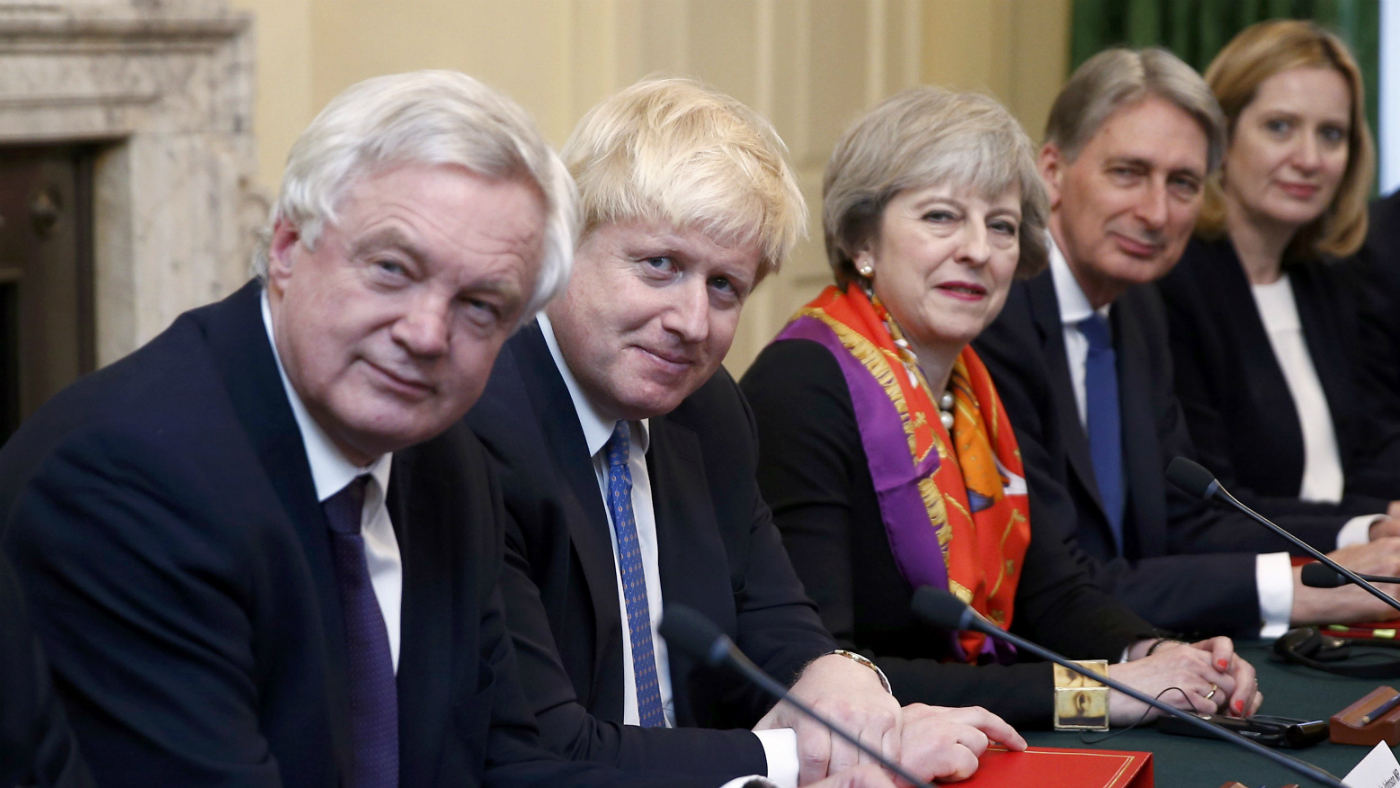
A free daily email with the biggest news stories of the day – and the best features from TheWeek.com
You are now subscribed
Your newsletter sign-up was successful
Theresa May’s unforgettable Tory conference speech this week has reignited speculation that the Prime Minister could be gone by the end of the year.
It is “like the moment when the vet tells you it is more cruel to keep the Labrador alive”, one MP told the BBC’s Laura Kuenssberg.
The Times says the in-fighting has left May “one crisis from the exit”.
The Week
Escape your echo chamber. Get the facts behind the news, plus analysis from multiple perspectives.

Sign up for The Week's Free Newsletters
From our morning news briefing to a weekly Good News Newsletter, get the best of The Week delivered directly to your inbox.
From our morning news briefing to a weekly Good News Newsletter, get the best of The Week delivered directly to your inbox.
“May is politically more vulnerable than at any moment since losing her majority,” reports the Financial Times.
Five former cabinet ministers have joined a plot to force the PM to quit, according to the London Evening Standard, which says: “A 30-strong group plans to send a delegation to No. 10 to ask the Prime Minister to resign before Christmas.”
But many of those in government have attempted to downplay rumours of May’s demise - with one supposed “plotter” telling The Mail on Sunday’s Dan Hodges that “now isn't the time” to be signing letters of no confidence.
Even if May did step down, finding a successor would be difficult. Under the Conservative system, the parliamentary Tory party has far greater control over the shortlist than its opposition equivalent has in a Labour leadership vote. Just the two most popular Tory candidates go through to the final run-off.
A free daily email with the biggest news stories of the day – and the best features from TheWeek.com
“To be certain of even getting to that stage, you have to be able to count on the support of more than a third of the parliamentary party – as that way you cannot finish lower than second place and will therefore get through to the final round,” explains the New Statesman’s Stephen Bush.
That means any potential successor needs the support of at least 105 MPs to be put forward.
So who’s in the running to replace the Theresa May?
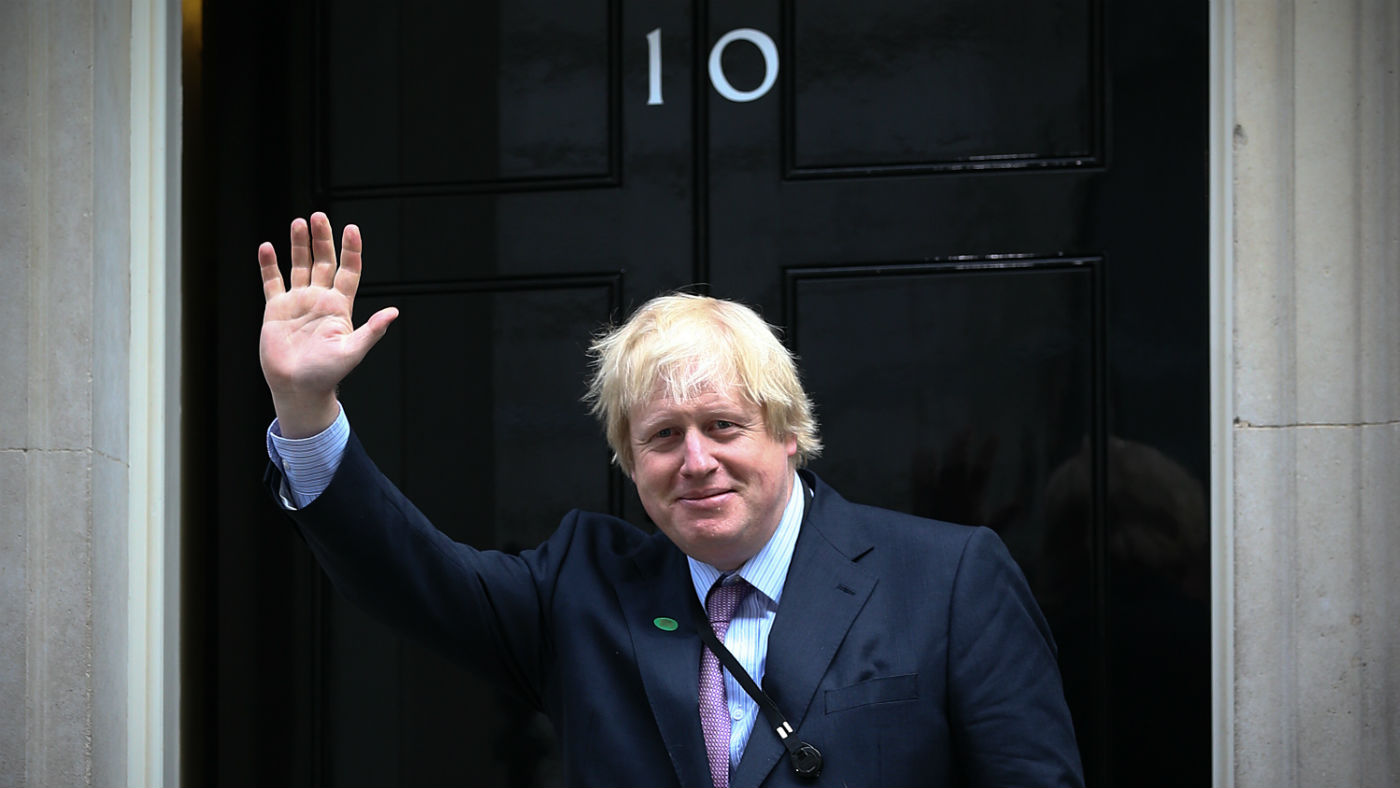
The appeal of Boris Johnson is clear to many. His conference speech was praised in the right-wing press for making Tories “feel good about themselves” again. His pro-Brexit pronouncements have gone down well with hard-line Leavers, and his oratory skills stand out.
Yet Johnson’s difficulty “is that most Conservative MPs regard him in much the same way as the average African farmer regards an actual elephant: gallumphingly destructive but protected by a fearsomely good PR strategy”, says Bush.
After weeks of dominating the media coverage, it is clear that some cabinet members are tired of his thinly veiled leadership manoeuvres. “In conversations with nine senior ministers, I have never known a cabinet so seethingly, openly angry with one of their own,” says Jenni Russell in The Times.
“The great irony is, if he'd just kept his mouth shut, people would now be saying, ‘Maybe we do need Boris after all’,” adds the Sunday Mail’s Hodges.
“Boris will surely fight like fury to avoid a stitch-up or a leadership contest in which he is not put in front of the Tory membership in the final two,” says Reaction’s Iain Martin. But as it stands, “such is the anger of cabinet ministers and MPs with his behaviour in recent weeks that he may well be denied a go”.
Ruth Davidson
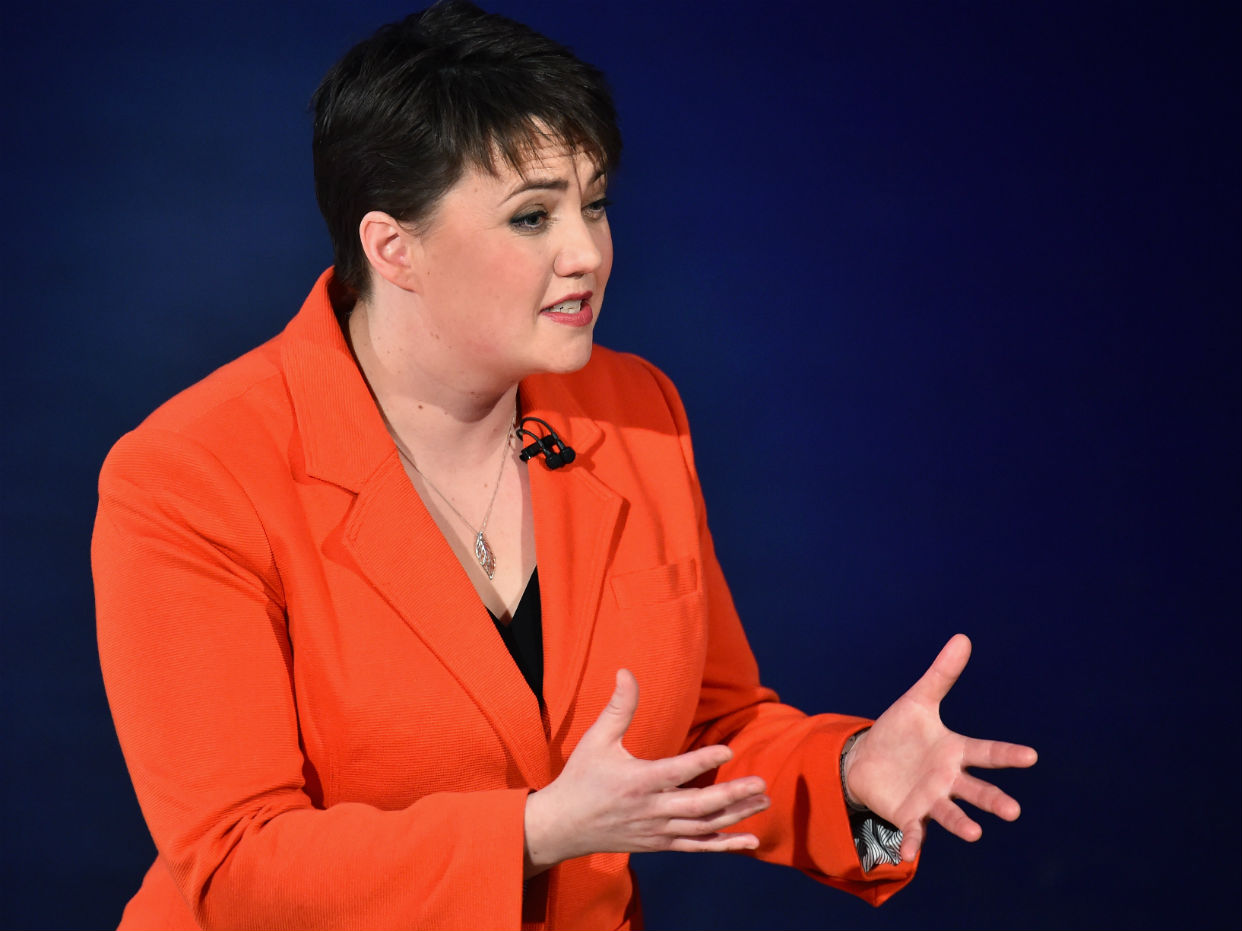
The darling of the Conservative Party conference, Davidson has had a meteoric rise thanks to the Scottish Conservatives’ strong showing in June’s general election.
“She is tough, fresh, original and her performance in Scotland has been amazing. She has charisma and wit and is a natural on television, the conference stage and social media,” says former Tory advisor Daniel Finkelstein in The Times.
Indeed, Finkelstein is so keen for Davidson to become leader that he suggests changing the party’s rules to get around the difficulty of her not being a member of the UK Parliament. Davidson seems unlikely to stand in a by-election any time soon, however, and her absence on the green benches in the House of Commons is acutely felt.
“Telling Westminster MPs how they should be doing things when she does not sit there is just the sort attitude that is likely to put people’s backs up,” says The Scotsman’s Brian Monteith.
Additionally, there are questions over her political acumen. In The Spectator, Alex Massie notes: “The gulf between life in opposition at Holyrood and life in government at Westminster is, shall we say, considerable. One is a little easier than the other.”
Amber Rudd
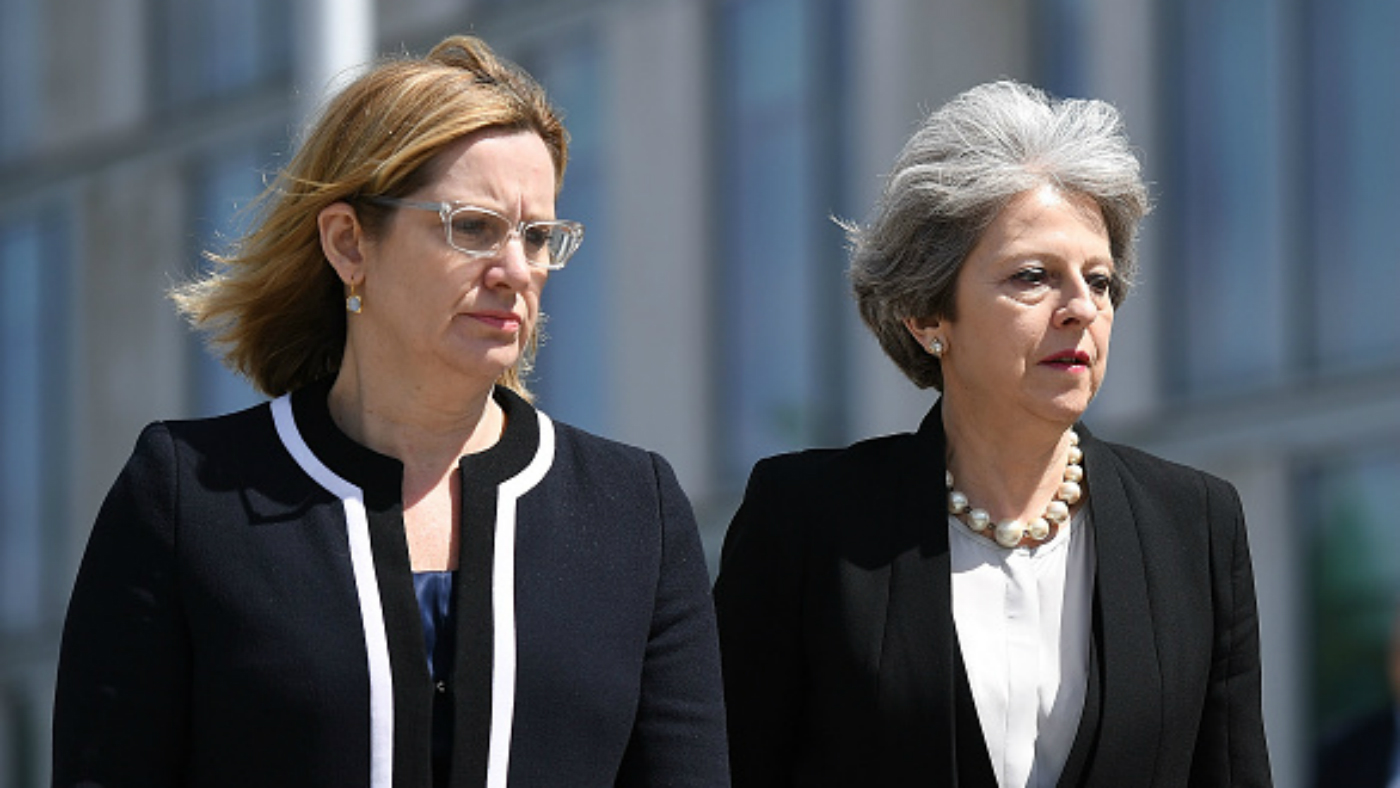
Seen as the most likely candidate from the liberal wing of the party, Home Secretary Amber Rudd has the backing of the majority of the Tory Remainers.
Rudd has also been steadfast in her support for May, a key factor in a party that values loyalty in leaders - think Heseltine and Thatcher in 1990.
But Rudd has some deficiencies - one of which is her slender majority in the June election, which fell from 4,796 to 346. That means her seat, in Hastings and Rye, will be a key target for Labour next time around.
Although a safe seat could always be found to remedy that problem, another stumbling block is that Rudd is not favoured by the party’s membership. In fact, says Stephen Bush, a recent YouGov poll showed “on any calculation, the combined support for all the pro-migration, centrist Conservatives such as herself struggles to exceed a third of the party membership”.
David Davis

The Brexit Secretary carries the support of many in the parliamentary party. Seen as a safe pair of hands, there were reports in July that as many as 30 Tory MPs were ready to back a Davis leadership bid.
“He has a lot of people saying, ‘You are the guy who can deliver on Brexit and deliver on Corbyn,” a well-placed Tory MP told The Daily Telegraph.
“What he has, like Corbyn, is genuine authenticity. David is the pre-eminent example of social mobility in the Tory party.”
Last month, the i reported that Davis had instructed supporters to be ultra-loyal to the PM both in public and in private. But the Brexit Secretary has told friends that he would put his name forward should May resign, as his ambition to become PM remains undimmed.
Certainly in his favour is the fact that Davis commands much greater respect among party members than Rudd, and, unlike Johnson, “would be cast as the continuity candidate who would bring stability to the listing ship”, according to the newspaper.
And the others...
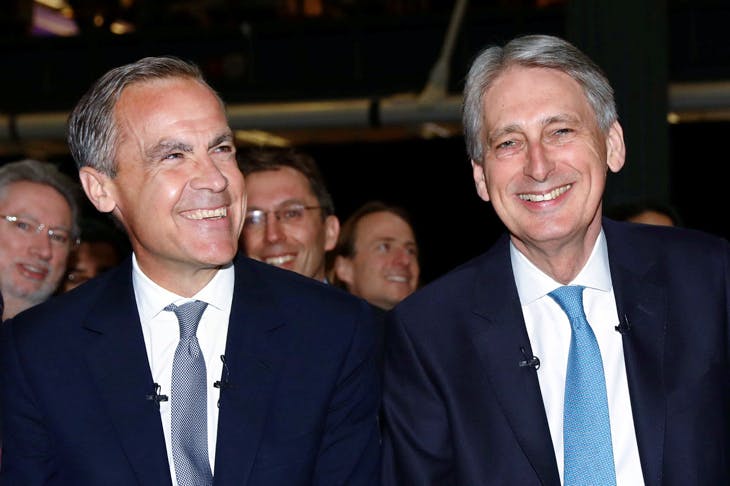
The Chancellor of the Exchequer Philip Hammond, who won a reprieve from the PM following the general election, is seen as one of the most pro-Remain figures in the Cabinet. Popular with business leaders, “who see him as a grown-up with a realistic approach to Brexit”, says James Kirkup on his blog on The Spectator, Hammond could find himself “left holding the baby” in a caretaker role. The Chancellor comes unstuck when it comes to support within the party membership however, and is currently polling at just 5% with activists.
Right-wing backbench MP, constant media presence and occasional Twitter meme Jacob Rees-Mogg has also been talked up by the party membership as a potential leader. Those behind “Mogg-mentum” trumpet his charisma and intelligence, but his extreme views on abortion and homosexuality are thought likely to leave him short of the 105 parliamentary MPs he needs to feature on the ballot.
Should the party decide to skip a generation and look to the future, Dominic Raab and Sajid Javid seem the most likely options. Raab is a familiar face on TV and a frequent contributor to the newspapers, with his pro-Brexit stance likely to appeal to the party’s grass roots. Meanwhile, although Javid “would appeal to the libertarian wing of the party”, says Tom Goodenough on his The Spectator blog, his wavering in the referendum - where he was expected to back Leave but ultimately chose Remain - seems likely to count against him.
-
 The ‘ravenous’ demand for Cornish minerals
The ‘ravenous’ demand for Cornish mineralsUnder the Radar Growing need for critical minerals to power tech has intensified ‘appetite’ for lithium, which could be a ‘huge boon’ for local economy
-
 Why are election experts taking Trump’s midterm threats seriously?
Why are election experts taking Trump’s midterm threats seriously?IN THE SPOTLIGHT As the president muses about polling place deployments and a centralized electoral system aimed at one-party control, lawmakers are taking this administration at its word
-
 ‘Restaurateurs have become millionaires’
‘Restaurateurs have become millionaires’Instant Opinion Opinion, comment and editorials of the day
-
 How corrupt is the UK?
How corrupt is the UK?The Explainer Decline in standards ‘risks becoming a defining feature of our political culture’ as Britain falls to lowest ever score on global index
-
 The high street: Britain’s next political battleground?
The high street: Britain’s next political battleground?In the Spotlight Mass closure of shops and influx of organised crime are fuelling voter anger, and offer an opening for Reform UK
-
 Is a Reform-Tory pact becoming more likely?
Is a Reform-Tory pact becoming more likely?Today’s Big Question Nigel Farage’s party is ahead in the polls but still falls well short of a Commons majority, while Conservatives are still losing MPs to Reform
-
 Asylum hotels: everything you need to know
Asylum hotels: everything you need to knowThe Explainer Using hotels to house asylum seekers has proved extremely unpopular. Why, and what can the government do about it?
-
 Taking the low road: why the SNP is still standing strong
Taking the low road: why the SNP is still standing strongTalking Point Party is on track for a fifth consecutive victory in May’s Holyrood election, despite controversies and plummeting support
-
 Behind the ‘Boriswave’: Farage plans to scrap indefinite leave to remain
Behind the ‘Boriswave’: Farage plans to scrap indefinite leave to remainThe Explainer The problem of the post-Brexit immigration surge – and Reform’s radical solution
-
 What difference will the 'historic' UK-Germany treaty make?
What difference will the 'historic' UK-Germany treaty make?Today's Big Question Europe's two biggest economies sign first treaty since WWII, underscoring 'triangle alliance' with France amid growing Russian threat and US distance
-
 Is the G7 still relevant?
Is the G7 still relevant?Talking Point Donald Trump's early departure cast a shadow over this week's meeting of the world's major democracies